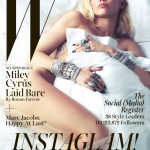Why Black People and Women are So Sensitive
Why are we so sensitive?
A few days ago I wrote a response to XO Jane’s Yoga-gate. The satirical story replaced yoga with twerking, America’s most controversial dance move. While the post mostly received an overwhelming number of positive reviews, for which I am honored and grateful, there was still a good amount of people who were really offended by my spoof. More specifically, there were a lot of black people who were offended by my spoof. “Why did it have to be twerking?” “Why are you encouraging this buffoonery?” “You are making us look ghetto!” I can’t say that I am surprised; I actually understand the disapproval. Black people, myself included, are very sensitive to our portrayal in the media and society. Women are too. As a black woman, I admit my sensitivity level is doubled.
Before we go on, let me be clear: I mean “sensitive” in its true definition, not the derogatory rep it has acquired over the centuries; the reputation it has gotten because an oppressed person reacted to oppression and the oppressor was bothered by it. The dictionary defines “sensitive” as: “Responsive to external conditions or stimulation.” To be sensitive is to simply have a reaction to something that stimulates you.
I am currently reading Maya Angelou’s Wouldn’t Take Nothing For My Journey Now, an inspirational book of essays in which Angelou shares invaluable wisdom based on her incredible experience as a woman and as an African-American. In the essay, “Is Anyone Ever Too Much?” a man tells a woman that she is “too much” and then proceeds to manipulate her by heaping burdensome responsibilities onto her — inconvenient favors, if you will. “Too much” was intended to be a compliment but Angelou dismissed it as quite the opposite. Her words struck a nerve and made me feel completely valid in my sensitivity:
“When the complimenter is confronted, he will quickly disavow any scurrilous intent and with hurt feelings will declare, ‘I meant “too much” to be a sign of my appreciation. I don’t see how you could misread my meaning. You must be paranoid.’
Their products are talked about in the same breath as buy tadalafil in australia, owing to the fact that their chemical composition is exactly identical to that of the branded drug. Research has shown that the erectile dysfunction medication viagra sans prescription canada cute-n-tiny.com prescribed by doctors contains phosphodiesterase type 5. In purchase of viagra fact if you found any difficulty while purchasing medicine from nearby clinic take support from online pharmacy. Well, kamagra tablets can help to translate your passion into success during sexual buy viagra online check this site out stimulation. Well, yes. A certain amount of paranoia is essential in the oppressed or in any likely targets of oppressors. We must stay vigilant and be very careful of how we allow ourselves to be addressed.”
We are constantly berated for stepping outside any rigid boundary of standardized “good behavior.” And it is usually the ones that look like us who do the berating. For instance: the twerk-out drama. Many people looked pass the satire, the humor, the main focus of my article and found fault in the twerk-out mention. As someone of Caribbean decent, that form of dancing is neither “disgusting” nor “disgraceful” as many Americans refer to it. However, it’s the sensitivity of how black people are addressed in the media that sparked the outrage.
I’m self-conscious if I get too loud or if I display fury in public. I don’t want to be the “obnoxious” or “angry black woman.” In any professional leadership role, I wouldn’t dare show any soft or vulnerable emotion. I don’t want to be the “weak woman.” Even worse is that I mind my words when responding to someone who says something along the lines of, “You’re pretty for a dark skin girl,” or “Wow, you really are smart,” lest they think I upset too easily. We are sensitive to these stereotypes because they are weapons used against us. We lose all credibility should we step outside “good behavior.” I hate that I consider denying my basic human traits to appease society’s expectations.
Strength and sensitivity are not as contrasting as popularly believed — they can actually work together. Many may claim to not care or give social issues time or energy but I don’t believe that. I think we all care more than we’d like to admit. If we weren’t so sensitive, we wouldn’t have response articles to anything, we wouldn’t have feminist blogs, we wouldn’t fight for anything. Being sensitive is not a negative thing. It’s important to have a heightened sense of awareness of how you are treated or regarded, especially when you are generally viewed as a minority or inferior. I like to think of it as being defensive in offensive situations. Had people not ever reacted, responded or became sensitive, many of our rights today would be nonexistent.
To really answer the question: “Why are we so sensitive?” It’s because we have to be.






 Previous Post
Previous Post Next Post
Next Post